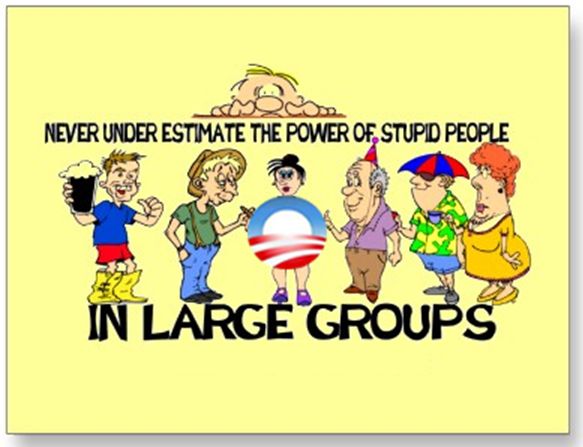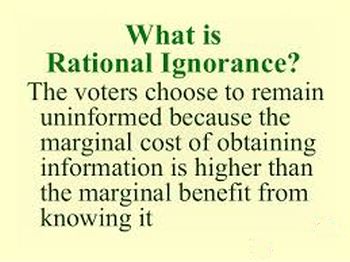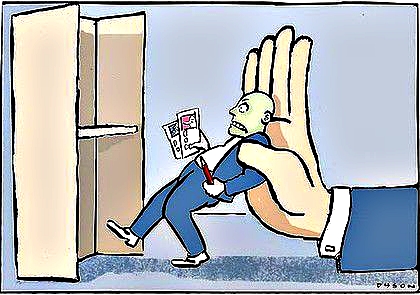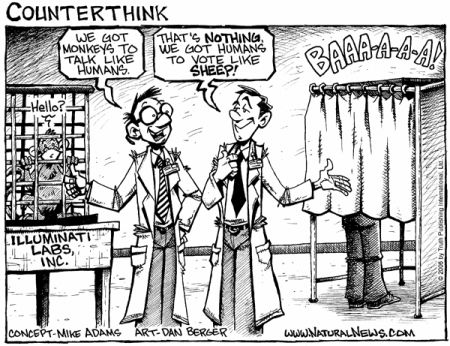Western liberal democracy does not work for the masses as they think it should for several reasons.
1. Liberal democracys create capitalist economic systems and capitalists run it because capitalism (profit driven corporations ) is authoritarian and non democratic by nature but it also has more sway on government policys either directly or indirectly than voters do. But this is not really debated because,
2. Personal choice over the greater good choice favoured by the ruling class and right wingers.
3. The bigger problem Vote of No Confidence Protest argues with "democracy" is voters are not fully informed enough to chose their representatives in government to act for them. This not only breaks any legal contract that entitles citizens to vote it also makes a mockery of ay said social contract .
Government intentionally does not teach us any political ideology , which covers , history, human nature , economics and types of government needed that would inform us too elect better representatives while we are in their government public education schools . In case we learn enough chose an entirely different government and economic structure from a western capitalist liberal democracy they represent .
Voter ignorance allows governments to direct the choice , overall direction and so the outcome of elections thereby maintaining the status quo. Even buffoon capitalist Donald Trump never intended to change that for all his lies about draining the swamp (because he made the issues abut other things).
This means voters get their information from elsewhere meaning 1) its time consuming and not worth it to investigate so either not done or leading to 2 ) its often not researched poorly or half hearted and biased or one sided or not thought through leaving voters to vote on their emotions or how pretty a political candidate looks.
Granted human intelligence has grown over the millenniums but think of our human submissiveness to government and the ruling class more like wild animal domestication of dogs horses and cattle.
As quoted from wikipedia page on criticisms of democracy , here
Lack of political education
Voters may not be educated enough to exercise their democratic rights prudently. Politicians may take advantage of voters' irrationality, and compete more in the field of public relations and tactics, than in ideology. While arguments against democracy are often taken by advocates of democracy as an attempt to maintain or revive traditional hierarchy and autocratic rule, many extensions have been made to develop the argument further.[26] In Lipset's 1959 essay about the requirements for forming democracy, he found that almost all emerging democracies provided good education. However, education alone cannot sustain a democracy, though Caplan did note in 2005 that as people become educated, they think more like economists.[37] To legitimize this point, it is often mentioned that German dictator Adolf Hitler rose to power by democratic means.[38]
Voter Ignorance[edit]
Plato believed it's reckless to allow common men to vote because the vote of an expert has equal value to the vote of an incompetent.[31] One such argument is that the benefits of a specialized society may be compromised by democracy. As ordinary citizens are encouraged to take part in the political life of the country, they have the power to directly influence the outcome of government policies through the democratic procedures of voting, campaigning and the use of press. The result is that government policies may be more influenced by non-specialist opinions and thereby the effectiveness compromised, especially if a policy is very technically sophisticated and/or the general public inadequately informed. For example, there is no guarantee that those who campaign about the government's economic policies are themselves professional economists or academically competent in this particular discipline, regardless of whether they were well-educated. Essentially this means that a democratic government may not be providing the most good for the largest number of people. However, some have argued that this should not even be the goal of democracies because the minority could be seriously mistreated under that purported goal.[32]
Jason Brennan believes that voter ignorance is a major problem in America and is the main objection to democracies in general. Brennan claims that "the democratic system incentivizes them [voting aged citizens] to be ignorant (or more precisely, fails to incentivize them [voting aged citizens] to be informed)".[33]
Brennan states that "less than 30% of Americans can name two or more of the rights listed in the First Amendment of the Bill of Rights".[33] Naturally, this creates a problem because an ignorant vote counts for the same as an informed vote. To be an informed voter one must have extensive knowledge of the candidate's current and previous political beliefs/tendencies, according to Brennan. Additionally, Brennan would claim that to truly be an informed voter one must be educated in other disciplines outside of politics – for instance, history and economics. The standard in which Brennan places on voters is significantly high; understandably, most Americans do not meet these expectations.
While most Americans fall short of these expectations, the cause of voter ignorance is not due to a lack of intelligence. Rather voters are simply rationally ignorant and rationally irrational. Firstly, rational ignorance means that voters are logical and/or reasonable for staying uninformed about politics. This is because becoming an informed voter, according to Brennan's standards, would be extremely cost-prohibitive to the individual. It would take an enormous amount of time to become informed to such a level and stay informed about current political events. When doing a cost-benefit analysis, most people would find that becoming informed is not worth their time. Other alternatives would be more worth the individual's time/effort. Therefore, people are considered rational for choosing not to be informed. Secondly, rational irrationality refers to the fact that it is logical for people to have cognitive biases resulting in irrational beliefs. Similar to why it is rational for voters to be ignorant, the cost-benefit analysis to correct cognitive biases is not in favour of the informed voter. Brennan claims that "just as it is instrumentally rational for most people to remain ignorant about politics, it is instrumentally rational for most of them to indulge their biases".[33] The costs outweigh the benefits because it would take an excessive amount of work to find neutral/fair information and correct one's own biases. In both cases, voters remain ignorant and irrational because the costs to become an impartial, informed voter do not outweigh the benefits. The impact of a competent vote is futile. In the grand scheme of things, a single vote amounts to very little. The chances that one's vote would be the deciding factor in the election is minuscule; therefore, why would one take the time to inform themselves with very little reward? One could spend an abundance of time becoming informed and rational only to result in the same outcome.
As quoted from webpage,
Democracy Pro et Contra
Six Arguments against Mass-democracy
2. Voters are not qualified
Voters make decisions of the most vital importance to the nation without the necessary basic knowledge; they are not qualified decision makers. The overwhelming majority of voters in the modern mass-democracy has nothing or a very superficial knowledge of economics, diplomacy, military tactics and strategy - indeed, in modern times, they do not even know their own nation's history. This corresponds to a doctor performing brain surgery without knowing even basic anatomy.
Winston Churchill said: "The best argument against democracy is a five-minute conversation with an average voter"

The American stand-up comedian George Carlin said the famous:
"Never underestimate the power of stupid people in large groups". From Whistleblower Newswire.
All this means that the winners of the elections will not necessarily be those that are the best to solve the nation's problems; But they will most often be candidates, who are experts in saying, what voters want to hear.
Typical politicians are created and fostered by the modern political system - it is not the reverse. Plato described that time politicians, the sophists, and we recognize the modern politicians. He compared the people, the voters, with a large and powerful animal, which was cared for, nurtured and fed by the politicians: "Further, I would have you consider that the hireling Sophist only gives back to the world their own opinions; he is the keeper of the monster, who knows how to flatter or anger it and observes the meaning of his inarticulate grunts. Good is, what pleases him, evil what he dislikes; truth and beauty are determined only by the taste of the brute. Such is the Sophist's wisdom, and such is the condition of those, who make public opinion the test of truth, whether in art or in morals." (The Republic)
3. Voters' Rational Ignorance
The voters' rational ignorance describes that they deliberately do not want to get acquainted with the political problems, because this will require costs in time and effort, while individual's benefits of his efforts in practice will be zero.

Voters Rational Ignorance.
Moreover, a voter, who has spent many hours to get acquainted with the problems, may on the election night experience being run over by millions of ignorant voters, whose votes count just as much as his, and that will make him frustrated. He will think that it is better to take it quite calmly and keep an ironic distance to the whole political circus.
Voters Rational Ignorance. From Le Quebecois Libre.
The concept of rational ignorance was introduced by Anthony Downs in 1957: "It is irrational (for individuals) to be politically informed because the low return from data simply does not justify their costs in time and other resources."
The logic is simple. Time is money, and it takes time to acquire information also about political issues. The individual's benefit from his political efforts will in practice be zero, and therefore the rational selfish individuals prefer to spend their time and energy on something else that is more related to their own lives and careers.
5. Voters Irrationality
Most voters unconsciously form their political attitudes based on their feelings.
Ordinary voters are anxious; they dearly wish that everything will continue as it always has done. That's why it is so effective to stamp political opponents as far right or left. Most voters are ready to accept any argument, telling them that everything will remain as before, no matter how bad and illogical it is.
The individual can be an excellent decision maker in everything concerning his private life, finances and career, but when it comes to political choices, he will often decide impulsively without deeper rational considerations. He may unwittingly rely on whether the candidate seems sympathetic and if he says the right things that he has heard before in school and in the media.

The rational voter is a myth. From Woodgate's View - The Irrational Voter - drawing by Dan Berger.
Descartes wrote: "For it seemed to me that I could find much more truth in the reasonings that each person makes concerning matters that are important to him, and whose outcome ought to cost him dearly later on if he judged badly than in those reasonings engaged in by a man of letters in his study, which touch on speculations that produce no effect and are of no other consequence to him except perhaps that, the more they are removed from common sense, the more pride he will take in them."
6. The Media Manipulate
The media manipulate voters. Newspapers and TV stations are the keys to political power in modern mass-democracy.
For the majority of voters, the decision on which candidate to vote for is a kind of intellectual left-hand work; it is not something that they give many and deep thoughts - and therefore they are easily influenced by the media that have more specific ideas about what they should think.
The vast majority of the unqualified and irrational voters do not form their opinions at random, they get them from the media. They sit faithfully on the couch in semi-darkness in front of the television and watch the news that the journalists think it is good for them to see. And media and journalists are not objective...
(not linked as it has some unsound , biased and irrelevant thoughts to the main point of this article and VONCP)
Comments
Post a Comment